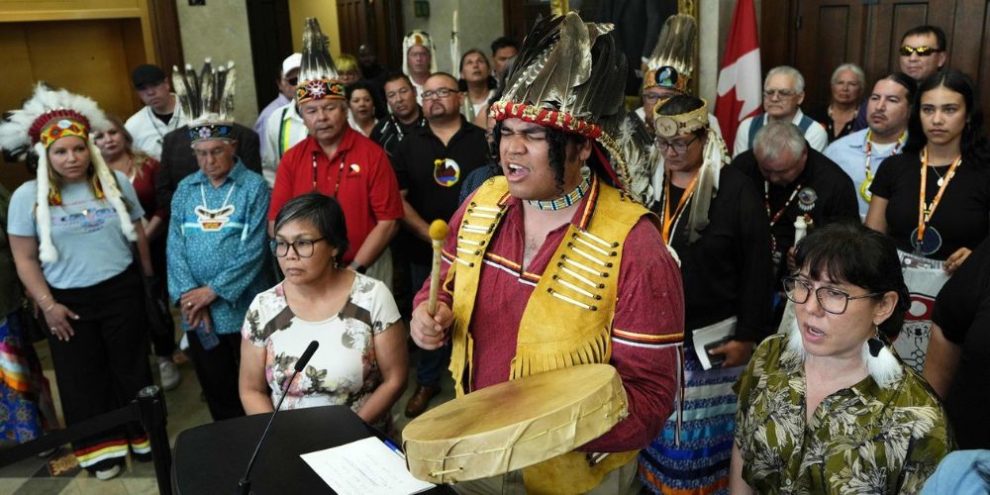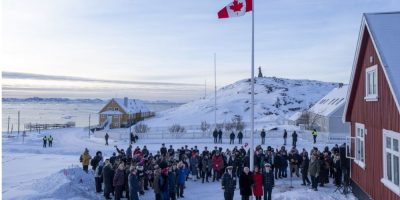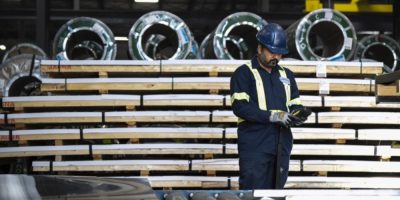
First Nations youth leaders are warning Canadians can expect a long, tense summer of protests as governments push forward with plans to fast-track major projects — and young people will be leading the charge.
"You will see us in your cities, your city's hubs," said Ramon Kataquapit, a youth councillor with the Chiefs of Ontario and Nishnawbe Aski Nation and a member of Attawapiskat First Nation in northern Ontario.
The federal Liberal government’s Bill C-5, which passed through the House of Commons Friday night, allows cabinet to quickly grant federal approvals for big industrial projects like mines, ports and pipelines. It sailed through a Commons committee in the early hours of Thursday with support from the Conservatives.
Barrie's News Delivered To Your Inbox
By submitting this form, you are consenting to receive marketing emails from: Central Ontario Broadcasting, 431 Huronia Rd, Barrie, Ontario, CA, https://www.cobroadcasting.com. You can revoke your consent to receive emails at any time by using the SafeUnsubscribe® link, found at the bottom of every email. Emails are serviced by Constant Contact
And in Ontario, Premier Doug Ford’s Conservatives have passed legislation allowing his government to designate "special economic zones" where the provincial cabinet can exempt companies or projects from having to comply with any provincial law, provincial regulation or municipal bylaw.
Both pieces of legislation have met with fierce resistance from First Nations leaders who accuse Ottawa and Queen's Park of trampling on their rights and failing to consult with them in good faith.
Kataquapit said First Nations youth are "starting a movement" to protect their cultures and lands from what they see as increasing encroachment by governments looking to build major projects in a hurry.
He compared both pieces of legislation to a rock falling off a mountain.
“You don’t know how much momentum it’s going to build," he said. "It might cause a mudslide and turn into something like an avalanche.
“This can turn into something much bigger, and a lot of our people — a lot of the youth — we see that.”
While chiefs have been the most prominent First Nations voices in news coverage of the legislation, Kataquapit said young people were the driving force behind recent rallies against the fast-track bills in northern Ontario, at Queen’s Park and on Parliament Hill.
He said they draw inspiration from the Anishinaabe Seven Fires Prophecy, which speaks of a "seventh fire" generation that will bring back traditional knowledge and ways of living after a period of cultural dislocation.
“We were raised to be the seventh generation," Kataquapit said. "What I’ve been taught was that it’s my role to wake people up and to really show just how much colonization has affected us, but (also) how much strength we have in our traditional identity, culture …
“The seven fires are ready to take the steps that our leadership are falling back on because they fought a good fight for their entire lives. It’s just nature that you grow tired, scarred, traumatized.”
Terra Roy, another youth councillor with Chiefs of Ontario, said First Nations youth can do more than just protest — they can engage with the land and with traditional knowledge as an act of resistance.
“We have young people in Attawapiskat taking the rivers,” Roy said. “I’m happy that we’re returning to the land and continuing to occupy it.”
Roy, who works as a liaison between Beausoleil First Nation and the private sector, spoke to The Canadian Press while attending a project management training session in Edmonton.
Roy said the federal and provincial legislation makes their own work seem almost futile.
“I was like, ‘Well, what the heck did I just get hired for then if (governments are) just going to bulldoze over everything I say?’” Roy said.
“I’m here trying to create a whole department for my community so that we can have a greater say in our treaty area and then (governments) are like, ‘Oh, just kidding.’
"I’m angry. I’m frustrated, heartbroken, annoyed.”
Much of that frustration comes from a sense of déjà vu. First Nations say they've been in this position before, when legislation introduced by the Stephen Harper government to allow governments and businesses to push through projects without strict environmental assessment triggered the countrywide protest movement known as Idle No More.
Roy vividly remembers sitting with their mother as a child as they took part in an Idle No More protest at a mall.
“It’s frustrating that at 11 years old I was doing that, and now again at 23,” Roy said. “If I’m tired of having to fight this again, I can only imagine how my grandmother feels.”
Hanna Sewell, a nurse and a member of Batchewana First Nation near Sault Ste. Marie, Ont., said young people have to lead this fight because they're the ones who will have to live with the impacts of accelerated development.
“If the land is sick, we’re going to be sick as well,” she said.
“We don't want this bill, and we are the future generations that are going to govern this land and save it.”
Pierre Debassige, a member of M'Chigeeng First Nation and youth councillor for Anishinabek Nation, said First Nations won't be the only ones to experience those impacts.
“If they start development in the Ring of Fire in the Far North, all those lakes, rivers all come down to the Great Lakes,” he said.
“If there’s that contamination that comes down from the North, it’s going to affect not only their communities, but here in southern Ontario.”
Debassige said it’s his generation's turn to step up.
“United we stand and we conquer, but divided we fall one by one,” he said.
"I'm always thinking of that seven generations behind me (and) what my great-great-great-great grandchildren are going to be doing. Maybe they'll see the work that I've done as a young person, (that I) fought for all of this."
This report by The Canadian Press was first published June 21, 2025.





